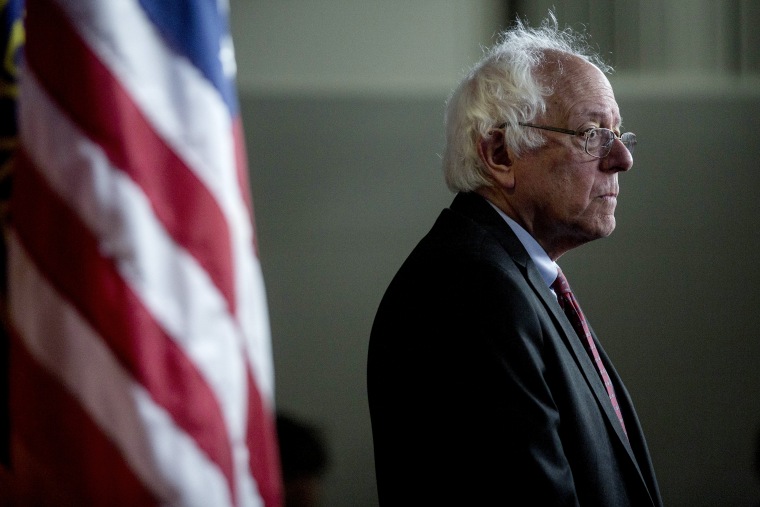Even Sen. Bernie Sanders' (I-Vt.) most ardent supporters would probably concede, albeit grudgingly, that he faces very long odds in the 2016 presidential race. So why run? Because there's value in having a national platform for bold, progressive ideas that might otherwise be ignored.
Bloomberg Politics
reported yesterday, for example, on Sanders' new plan to make public college tuition-free in the United States.
The plan will provide tuition-free higher education to students at four-year colleges, the statement said, and is modeled after the way many European nations handle the costs of college. "Countries like Germany, Denmark, Sweden and many more are providing free or inexpensive higher education for their young people," Sanders said in the statement. "They understand how important it is to be investing in their youth. We should be doing the same."
That point about overseas examples is no small detail. The more the United States invests in an educated workforce, the greater our competitiveness on the international stage. There's no better way to guarantee America's role as a 21st-century superpower than lowering the barriers to higher education.
And if major economies like Germany can make tuition at public colleges free, there's no reason the United States can't, too. So what's the next step?
Obviously, in a Republican-led Congress, the discussion is over before it starts, and there's simply no way a proposal like Sanders' will even get a vote. If GOP lawmakers instinctively balked at President Obama's plan for free community-college tuition, it stands to reason that Congress will completely ignore the measure from the Vermont Independent.
As for how the senator would pay for the idea, Sanders hasn't released many details, but college costs would reportedly be paid for through a new tax on stock trades.
There are also some logistical challenges that would need to be worked out -- in much of Europe, education at every level is more centralized, which as Libby Nelson
noted yesterday at Vox, "gives the government more authority to set prices."
But Sanders' idea is likely about changing the nature of the conversation. Indeed, as Republican politics becomes radicalized, so too does the GOP's approach to higher education. The
Washington Post recently had
this report on the congressional Republican budget.
Senate Republicans passed a budget on Tuesday that would roll back or eliminate a series of federal programs aimed at making college more affordable and student debt more manageable. [...] Tucked into the spending plan is the elimination of guaranteed funding for Pell Grants, which provide money for the country's poorest students to attend college. Under the Republican plan, it would be up to Congress' discretion to fund the program every year, leaving families vulnerable to future budget cuts.
At the state level, red states are struggling with budget shortfalls, and it's
university budgets that end up on the chopping block.
It's against this backdrop that Bernie Sanders proposes moving in the exact opposite direction. Let the debate begin.
